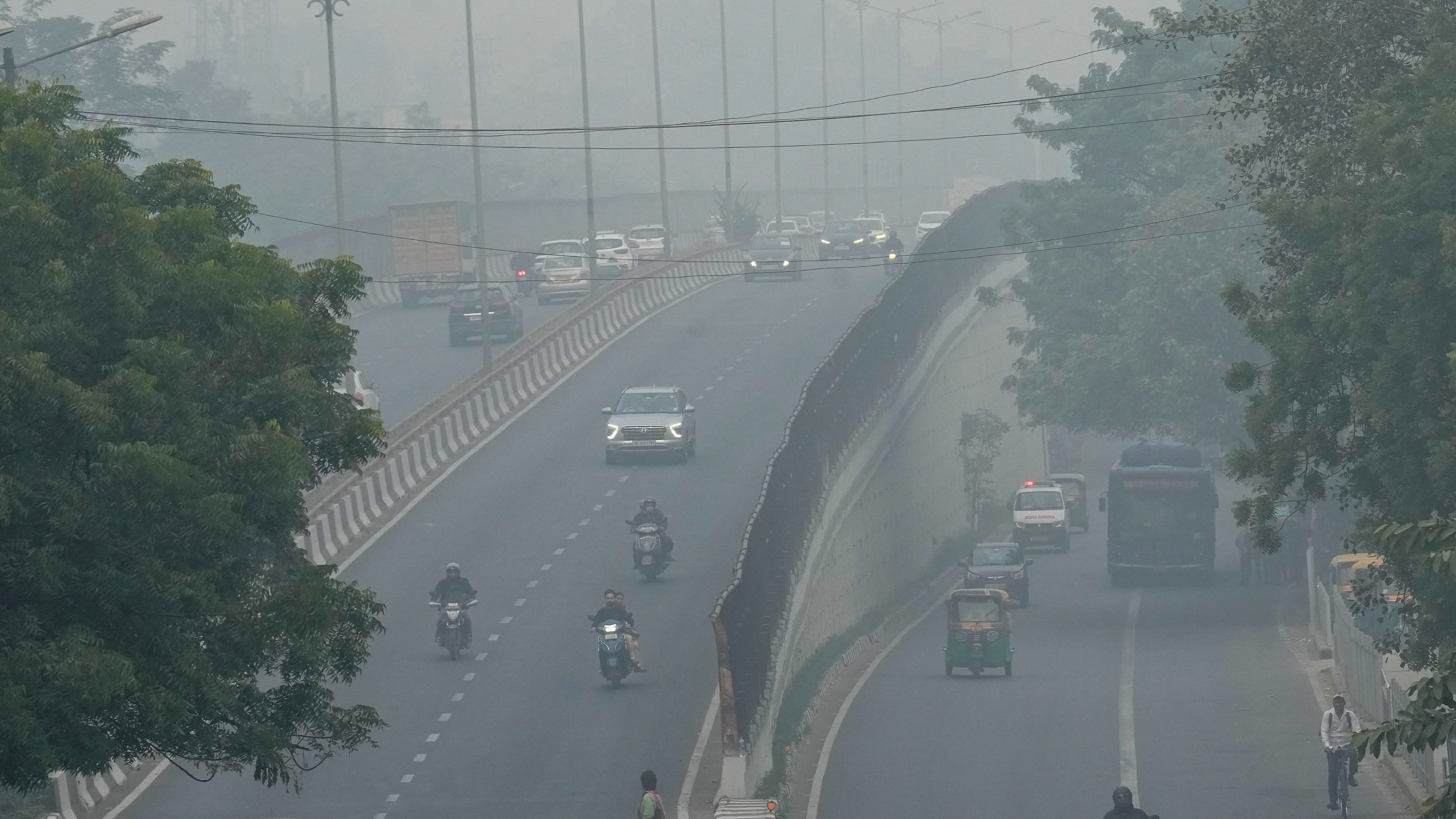
Vehicles move on a road amid smog, in New Delhi.
Credit: PTI Photo
New Delhi: Ahead of Diwali, the Union Health Ministry has warned the states about a possible spike in air pollution-related illnesses while advising people to use N95 masks, not to go outside for morning walks and stop jogging if the AQI goes above 200.
In two separate advisories, Sudhansh Pant, Union Health Secretary and Atul Goel, Director General of Health Services have reminded the state administrations of the challenging health impacts of air pollution, not only of the acute illnesses that such toxic air can cause but also of chronic illnesses triggered by pollution resulting in premature deaths.
While the advisory is on air pollution as seen in several big Indian cities at the moment, it factors in Diwali's contribution too for a spike in the level of air pollution and advises staying indoors on Diwali night to reduce exposure.
While the Delhi National Capital Region and surrounding areas were battling with a toxic haze for the last 7-8 days, for the first time Mumbai too was covered by a smog blanket this year. On Saturday, a haze engulfed Kolkata as the air quality deteriorated with the AQI ranging from poor to very poor.
If the Air Quality Index goes beyond 200, the advisory has recommended avoiding jogging, running or other strenuous physical activities, not opening external doors and windows during morning and late evening hours, and ventilating rooms if necessary in the afternoon. Also, if one has to go out, then wearing N95 or N99 masks has been recommended.
The vulnerable groups are children below 5 years, the elderly population, pregnant women, those having predisposed health conditions, people from poor socio-economic backgrounds and those who work outdoors.
Meanwhile, the residents of Delhi National Capital Region, however, woke up to a blue sky on Saturday after a week of suffocation as yesterday’s rain – triggered by a spell of Western Disturbance - washed off a sizable chunk of polluting particles.
The AQI in Delhi and its satellite towns dropped to the “poor” category after being in the “severe” range for the last seven days at a stretch.
